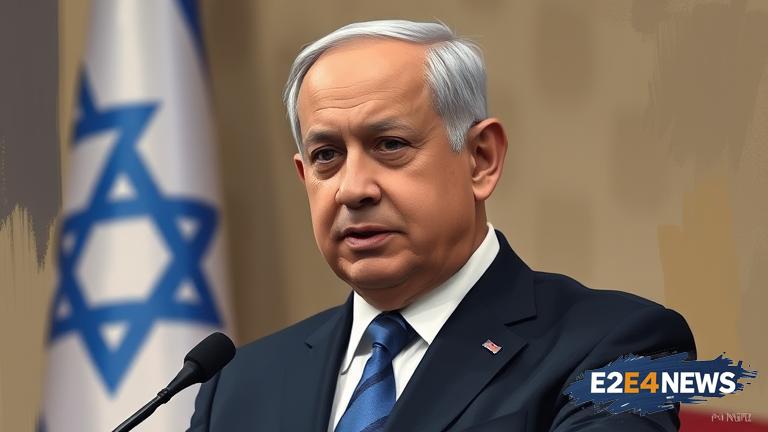The recent announcement by Israeli Prime Minister Benjamin Netanyahu to impose full occupation on Palestinian territories has sent shockwaves throughout the international community. This move has been met with widespread criticism and concern, with many viewing it as a significant escalation of the Israeli-Palestinian conflict. The decision is seen as a major shift in Israel’s policy towards the Palestinian territories, which have been under Israeli occupation since 1967. Netanyahu’s plan involves the annexation of large areas of the West Bank, which would effectively cut off any hopes of a two-state solution. The move has been condemned by Palestinian leaders, who see it as a blatant attempt to undermine their rights and sovereignty. The international community, including the United States, the European Union, and the United Nations, has also expressed strong opposition to the plan. Many have warned that the move would have severe consequences, including the escalation of violence and the destabilization of the region. The Israeli government has defended the plan, citing security concerns and the need to protect Israeli citizens. However, critics argue that the move is motivated by a desire to expand Israeli settlements and consolidate control over the Palestinian territories. The plan has also been criticized for its potential to undermine the prospects for a peaceful resolution to the conflict. The Israeli-Palestinian conflict has been ongoing for decades, with periods of relative calm punctuated by outbreaks of violence. The conflict has its roots in the early 20th century, when Zionist Jews began immigrating to Palestine, then under Ottoman rule. The establishment of the State of Israel in 1948 led to the displacement of hundreds of thousands of Palestinians, who were forced to flee their homes or were expelled by Israeli forces. Since then, the conflict has continued, with periods of relative calm punctuated by outbreaks of violence. The Israeli government has long been accused of pursuing policies aimed at consolidating control over the Palestinian territories, including the construction of settlements and the imposition of restrictions on Palestinian movement and access to resources. The international community has repeatedly called for a two-state solution, which would involve the establishment of an independent Palestinian state alongside the State of Israel. However, the prospects for such a solution appear to be dwindling, as Israel continues to expand its settlements and consolidate control over the Palestinian territories. The decision by Netanyahu to impose full occupation on Palestinian territories has been seen as a major blow to the prospects for a peaceful resolution to the conflict. The move has been condemned by human rights organizations, who argue that it would lead to a significant escalation of human rights abuses against Palestinians. The Israeli government has been accused of pursuing policies aimed at suppressing Palestinian dissent and opposition, including the use of force against protesters and the imposition of restrictions on freedom of speech and assembly. The international community has a critical role to play in resolving the Israeli-Palestinian conflict, and it is imperative that world leaders take a strong stance against Israel’s plans for full occupation. The United States, in particular, has a significant influence over Israel and must use its leverage to pressure the Israeli government to reverse its decision. The European Union and other international organizations must also take a strong stance against the plan, and work towards a peaceful resolution to the conflict. Ultimately, the resolution of the Israeli-Palestinian conflict will require a commitment to justice, equality, and human rights for all parties involved. It is only through a negotiated settlement that takes into account the rights and concerns of both Israelis and Palestinians that a lasting peace can be achieved.





